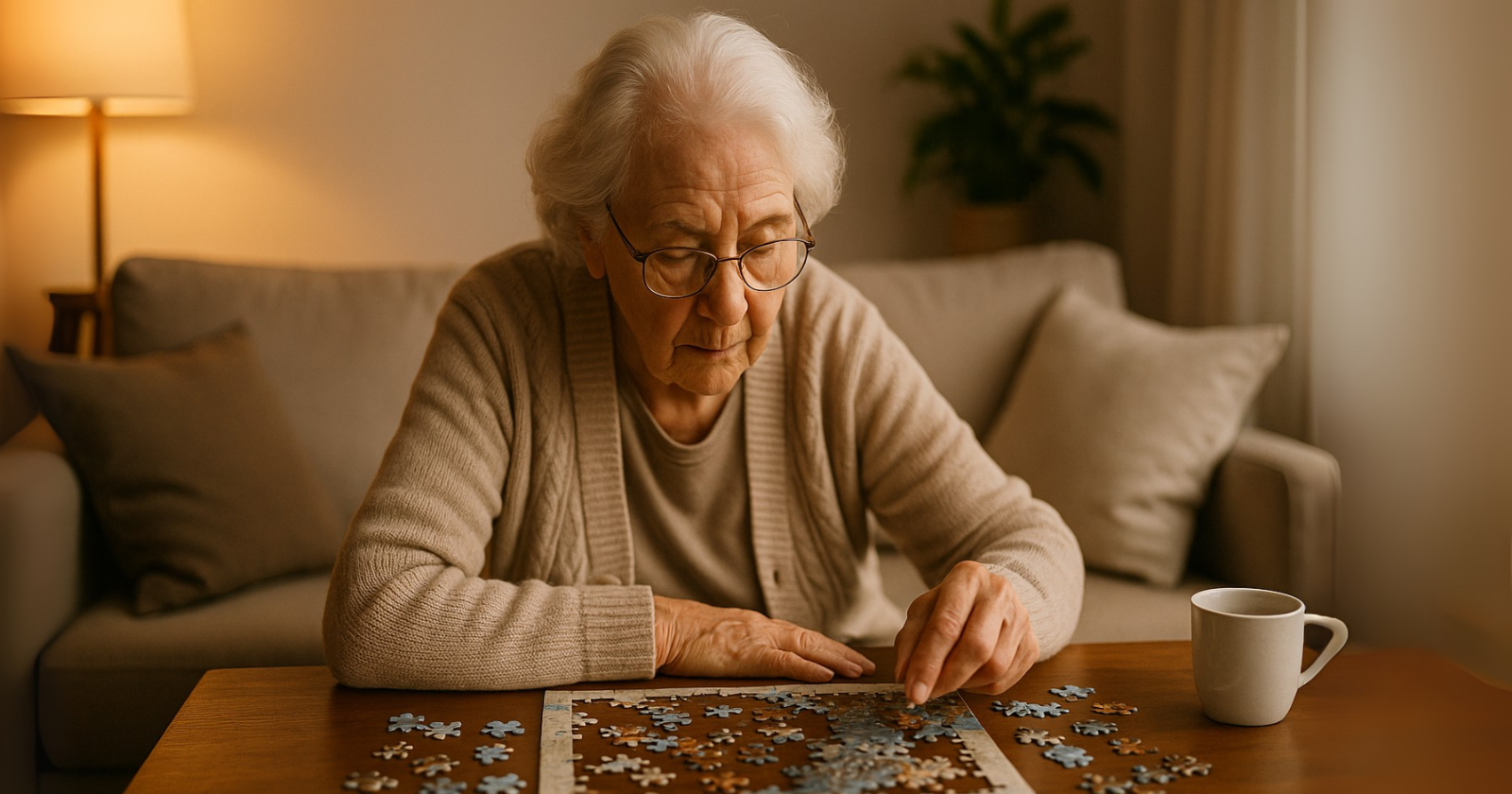Getting older doesn’t make you less. In so many ways, it makes you more.
I didn’t fully appreciate that until my early sixties, when the noise of career ladders and deadlines faded and I noticed what remained: perspective, patience, and a clearer sense of what matters.
Now, when I’m at the park with my grandkids and a younger parent asks how I stay so calm when the toddler meltdown begins, I smile.
You learn a few things after six-plus decades on the planet.
Today I want to shine a light on the strengths people over 65 bring to families, workplaces, and communities—strengths that younger generations often miss.
If you’re over 65, you’ll recognize yourself here; if you’re younger, consider this a friendly peek behind the curtain:
1) Wisdom under pressure
When you’ve lived through recessions, family crises, health scares, and the thousand tiny dramas of daily life, your nervous system stops sprinting at every alarm.
You pause, breathe, and ask better questions: “What exactly is the problem? What’s the one helpful next step?”
I’ve had bosses half my age pull me into a meeting mid-crisis just so I could sit in the corner and be “calm energy.”
It’s not magic.
It’s mileage.
Related Stories from The Artful Parent
- 7 things people discover about themselves after their children are grown and their career is over that they wish someone had warned them about at 40
- There comes a day when your child stops telling you things — not because something went wrong but because they found someone else to tell — and that’s the version of letting go that no one prepares a parent for
- A child will grow up and forget almost everything about their childhood except how the house felt when they walked in the door — and that feeling was never about the house
Experience lets you separate the urgent from the important—and that keeps families steady and teams moving forward.
2) A long view of what really matters
We don’t sweat every small setback, because we’ve watched short-term losses turn into long-term wins.
Missed a promotion? It might open space for a better path.
Rough week with your teenager? The relationship is a marathon, not a sprint.
With kids, this shows up as prioritizing connection over perfection.
I’m more likely to shrug at a messy room and focus on a real conversation.
- Japanese proverb: “the nail that sticks out gets hammered down” — psychology says children who internalized this display these 8 people-pleasing traits that are still controlling their relationships decades later - Global English Editing
- Most people don’t realize that the generation who told their children ‘you can be anything you want’ secretly carried the unspoken ending of that sentence: because I couldn’t - Global English Editing
- I spent twenty years dismissing my father’s advice as outdated boomer thinking – and then at 37 I looked around at my life and realized every single thing he warned me about had quietly come true - Global English Editing
The long view says: “I care more about who you are becoming than whether you color inside the lines.”
3) Emotional steadiness
The older I’ve gotten, the less I’m tossed around by my moods.
That steadiness is contagious.
When a child is overwhelmed, nothing helps like borrowing an adult’s calm.
Same at work—tense call, tense room, and the older person is the one speaking softly, naming the issue, and keeping things civil.
There’s an old line I love: “Your presence is your power.”
People over 65 bring a grounded presence that keeps households and teams from being hijacked by the drama of the moment.
4) Practical problem-solving

You want creative? Give a problem to someone who has repaired the same sink three different ways because the hardware store was closed on Sunday.
We’ve hacked school plays with broken props, turned leftovers into a decent dinner, and figured out how to stretch a paycheck when prices jumped.
This isn’t just thrift; it’s creativity with constraints.
My grandkids once wanted a “rocket ship” for the backyard.
Cardboard, duct tape, two old garden chairs—blastoff.
Younger folks sometimes underestimate just how inventive you get when you’ve had to make do for decades.
5) Relationship wisdom
If you are a regular reader, you may remember I once wrote about “listening like you have time.”
That’s something age teaches you.
We learn which battles to pick, how to apologize without excuses, and how to love the person in front of us instead of the fantasy in our head.
Grandparenting sharpened this for me.
I’m no longer trying to fix every feeling.
I’m here, I’m listening, and I trust you’ll find your way.
Counterintuitively, that trust often speeds up the healing.
6) Patience that grows people
Younger generations sometimes mistake patience for passivity—it isn’t.
Patience is investing in the slow stuff that creates strong humans: routines, boundaries, and encouragement that doesn’t quit after the first stumble.
When I taught my grandson to ride a bike, I jogged behind him for what felt like a mile.
He kept shouting, “Don’t let go!” I kept saying, “I’m here.”
At some point I realized my hand had been off the seat for half a block.
He felt my patience long before he noticed his own balance.
7) Gratitude for ordinary days
After sixty-five, the miracle isn’t the exotic vacation; it’s the Tuesday morning with coffee, a good book, and a text from someone you love.
That gratitude spills into how we parent and grandparent.
We celebrate small wins, not just sky-high achievements.
A quiet strength grows from saying, “This is enough.”
Kids need that.
In a world screaming for more—more likes, more hustle—elders model the contentment that protects mental health.
8) Resourcefulness with time and money

We’ve watched trends come and go—gadgets that promise to change your life, apps that will finally make you productive.
The older crowd has a knack for asking, “Does this actually solve the problem?” We’re good at making a little go a long way, which is a gift to families living on budgets and to teams with limited resources.
Resourcefulness also means knowing when to call in help.
Younger me would brute force projects at 11 p.m.; older me hires the teenager next door to mow the lawn and uses the time for a game night with the grandkids.
Better use of money and time, better use of life.
9) Commitment to community
A surprising strength after 65 is how much we show up.
Bake sale? We’ll bring the brownies.
Local cleanup? We’ve got gloves.
We’re the ones waving hello on morning walks and checking on the neighbor who hasn’t opened the blinds.
Why does this matter for younger generations? Because kids copy what they see.
When they see an older adult value community—names, faces, rituals—they learn that belonging isn’t a download; it’s something you build.
10) Clear boundaries (with kindness)
Here’s something freedom brings: the ability to say no without writing a three-paragraph apology.
After decades of people-pleasing, many of us finally recognize that “no” is a complete sentence.
That clarity creates safer homes and healthier teams.
With kids, boundaries look like steady routines and consistent expectations.
With adult children, it might be, “I love you, and I won’t fund that choice.”
Younger folks sometimes misread boundaries as coldness.
In truth, they’re a form of love—love with a backbone.
11) Perspective about failure
I’ve failed enough to know it rarely kills you.
It bruises, humbles, and—if you let it—teaches.
When my son didn’t get into his first-choice university, I remember telling him, “This isn’t the end of a story. It’s the twist that makes it interesting.”
He rolled his eyes, but later admitted that detour gave him the friends and mentors he needed.
For kids and young adults, being around someone who treats failure like data (not doom) is priceless.
We model how to take feedback, try again, and keep our identity intact.
12) Storytelling that connects generations
We carry old family stories: the great-grandmother who crossed an ocean with one suitcase, the uncle who started a business from a garage, the time a storm knocked out power for three days and the neighborhood cooked together by flashlight.
Those stories aren’t nostalgia; they’re emotional DNA.
When children hear them, they inherit a sense of resilience.
“People like us do hard things.”
I like to sprinkle stories into everyday moments—on a school run, while stirring soup—so the past feels like a hand on the shoulder, not a lecture from a podium.
13) A steady compass for values
Trends shift, slang changes, algorithms rewire culture every six months.
Underneath all that, the basics don’t move: tell the truth, keep your word, be gentle with the vulnerable, contribute more than you consume.
Older adults tend to live by those core values not because we’re perfect, but because time keeps proving them right.
Kids and younger coworkers don’t need us to be cool; they need us to be consistent.
The compass isn’t flashy, but it points north every time.
Final thought
Younger generations often underestimate what age gives you because it’s hard to see from the outside.
However, the gifts are real: Calm in the storm, patience that grows people, stories that tether us, and values that keep the needle pointed north.
I’ll leave you with a question to mull over at your next family dinner or team meeting: Which of these strengths could you lean on more this week—and who in your life over 65 could help you do it?



